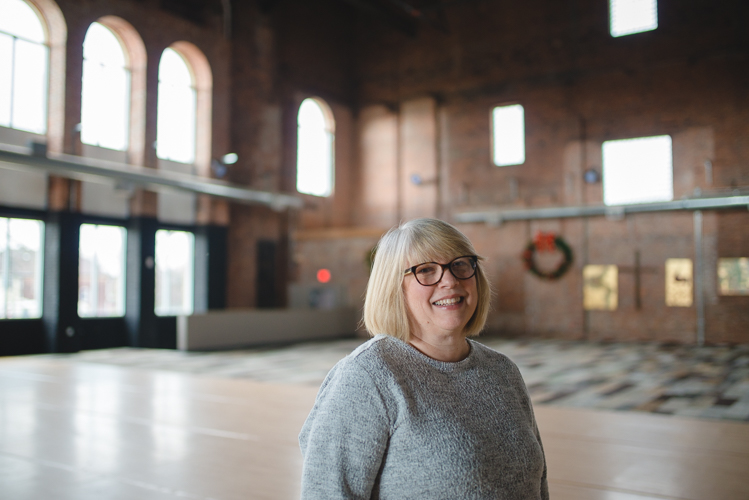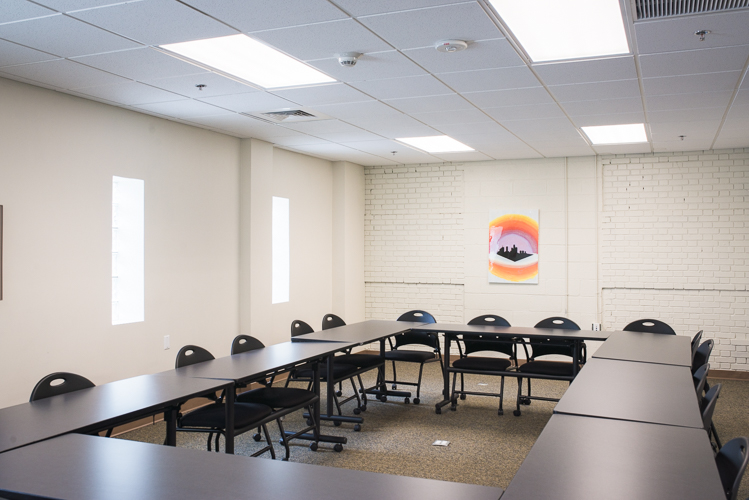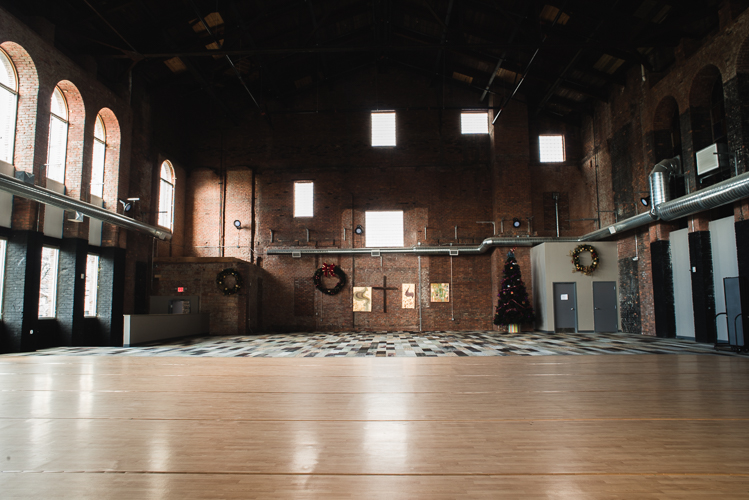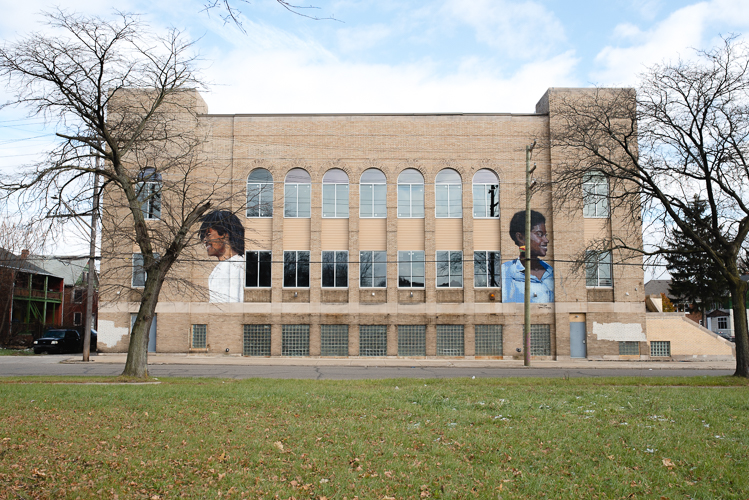Why place-based, non-profit developers matter now more than ever in Detroit
Centering the voices and concerns of residents is often an essential component of community development corporations, or CDCs. And this mission is becoming more important as Detroit transforms rapidly with development.
It’s a cool and overcast day in early November, and Ezekiel Harris is getting ready for a community meeting to address what role his organization, MACC Development, can play in the neighborhood’s housing. This will be one of the first times MACC has tried to address housing needs in the 48214 zip code, and Harris is clear about the fact that he doesn’t know how the meeting is going to go.
“We’re truly trying to figure out what are the priorities for our community,” Harris says.
Being able to operate with humility and the sense of ambiguity that comes with not thinking you have all the answers are important skills for community development corporations, or CDCs, like MACC. Centering the voices and concerns of residents is often an essential component of these nonprofit developers. And this mission is becoming more important as Detroit transforms rapidly with development.
Although real-estate is a great tool for building wealth and can help the city create the tax base it needs to survive, it also sometimes ignores or even undermines affordable housing or businesses and services that meet the needs of current residents.
CDCs have a long history of providing support to residents of low-income communities, especially in neighborhoods where people of color predominate. Many of these non-profit developers, however, folded during the financial crisis when heavily-leveraged organizations were unable to stay afloat.
Since then, home ownership in Detroit has decreased and many residents are struggling with unaffordable rents. The city of Detroit is trying to combat this by obligating developers that receive certain types of funding to set aside 20 percent of new rentals as affordable.
But Lisa Johanon, executive director of Central Detroit Christian CDC, says that’s not enough to meet the need in her neighborhood north of New Center. There are also questions about how truly affordable this housing is. To make up for this gap, her organization provides 92 apartments at rents ranging from $500 to $750 per month. It’s also rehabbing eight houses this year for sale and rent with 14 more to come next year.
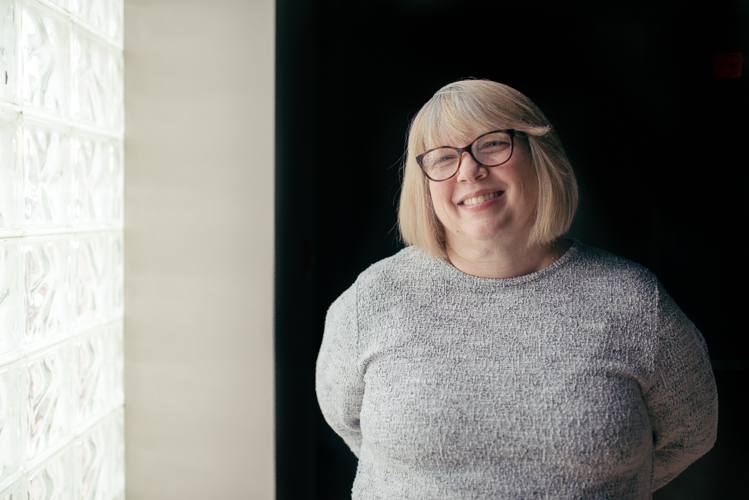
This is one of the primary functions for many of Detroit’s CDCs. Cass Corridor Community Neighborhood Development Corporation, for example, owns 250 apartments that help to anchor affordable housing in fashionable Midtown.
Organizations like Central Detroit Christian and MACC are also dealing with the ups and downs of living on the border of gentrifying parts of the city. Paradoxically, they’ve encouraged this development in some respects.
Central Detroit Christian started several businesses in the area, including a fish farm, urban garden, grocery store, and more. MACC started a coffee-shop and laundromat called The Commons to provide needed services in the neighborhood. These ventures provide job opportunities to local residents, but also make the area a more attractive place for development.
Harris understands the complicated dynamics at play. “By investing this amount of money into our community and making a lot of noise and attracting more eyes to our neighborhoods, we thought it would also cause more people to want to be a part of this community,” he says. “If we’re going to be a responsible developer, a responsible non-profit, a responsible neighbor, we’re going to do something about that. And that first step is getting at the housing.”

Johanon also sees CDCs as gatekeepers for their neighborhoods, especially in regards to working with those looking to do for-profit development. “It’s watching out to make sure people aren’t being displaced,” she says. “It’s keeping an eye on your senior citizens and making sure they’re being assisted if they need to be.”
This also envelopes activities like coordinating between citizens and the police to reduce crime. “We’re kind of like this layer for the neighborhood,” Johanon says. “They’ll report something to us before they’ll report to the police because they just don’t want to get them involved.”
The multiplicity of functions that some CDCs now perform from addressing concerns like community safety, education, athletics and economic development, as well as housing, contributes to the ability of these organizations to know where their community is coming from. Johanon and Harris also benefit from living in the areas they serve.
Johanon says she is regularly stopped by her neighbors to discuss various issues and makes a point of walking through the neighborhood every day. Harris says that having the vast majority of the staff and board be residents makes the organization less territorial. When they see outside interests looking to do work in their neighborhood, they’re less likely to challenge them just for the sake of maintaining control, provided they feel that the proposed changes will actually benefit the place where they live.
Of course, community engagement doesn’t happen by itself, and CDCs have developed a number of strategies to bring people into the conversation.
Johanon says it’s important to keep meetings at the same time every month and to address multiple issues at each one, so that more people show up to hear about the things they are interested in and maybe contribute to other discussions as well. She’s also had success developing sub-committees around issues like bike lanes, safety, and home repair to bring more people into the process.
“Make sure that the community knows that they have a voice and that their voice needs to be listened to,” she says. “When people find that out, it’s really fun.”
Harris stresses the importance of creating multiple opportunities to sound out residents on proposed initiatives. He feels this approach has substantial benefits for the organization and development in general. “Our projects aren’t guaranteed,” he says. “There’s a high-level of risk when you’re starting a business or doing any type of development. There’s so many reasons why it could fail.
“Why not take the extra time to actually understand what people really want,” he adds.

CDCs also find themselves in a complicated relationship with the city. Both Harris and Johanon feel that there needs to be a better framework for how the city can use CDCs. “Planners and whatnot at the city can’t be everywhere all the time,” Harris says. “And they can lean on nonprofits to start and do the work, but they should be understanding that that doesn’t necessarily mean that the city needs to come and take over — there can be a support that happens.”
Johanon points to Cleveland as a city that, when it comes to CDCs, “really views them as a vehicle for development.” A study by The Urban Institute identifies Cleveland along with Portland and Boston as one of its “Best Practice” cities for working with CDCs. Cleveland in particular has built a special relationship with CDCs, relying on them to advance affordable housing and home ownership strategies and providing them with a good deal of institutional support that included funding.
In addition to implementing policy, Detroit could also use CDCs to maintain a sense of accountability with city residents, something that they’re uniquely suited to do. For a young man like Ezekiel Harris, what makes this work exciting is exactly this sense of responsibility to his neighbors.
“The biggest thing that drew me to MACC development,” he says, “was the fact that we did what we said. If we say we’re going to do it, we’re going to do it.”
This article is part of our Equitable Development series, in partnership with Doing Development Differently in Metro Detroit, where we explore issues and stories on growing Detroit in a way that allows people from all races, classes, and abilities to participate and benefit. Read more articles in the series here.
Support for this series is provided by the Knight Foundation, Knight Fund at the Community Foundation for Southeast Michigan, and W.K. Kellogg Foundation.
Photos by Steve Koss.

